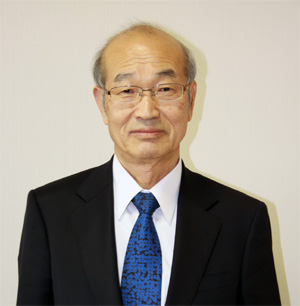This August saw record heat waves not only in Japan but all over the world, but also a chilling event in the world of economics. Stock prices in the Shanghai Stock Exchange in China plummeted, sending shivers through stock markets around the world, including Japan. There is growing concern that the Chinese economy, which has grown at a rapid pace, may be starting to slow down rapidly. How should we view the Chinese economy, and how should Japan deal with it? I would like to take up this issue from time to time in the future. To start with, I would like to write about my encounter with China.
My interest in China began almost 50 years ago, when the Cultural Revolution led by Mao Zedong was being carried out on a large scale in China. At the time, there were no diplomatic relations between Japan and China, but a Japan-China Journalist Exchange Agreement was concluded in 1964, and the Cultural Revolution could be reported on by Japanese journalists in addition to reports from overseas. It was a time when young people around the world, including myself, felt some sympathy for Mao Zedong's ideology, which called for reforming people's motivations and ways of thinking so that the interests of others (the people) take precedence over one's own interests. I still have several copies of the Selected Works of Mao Zedong in the original language with red covers.
Shortly after joining the newspaper company, Mr. S, who was working as the first Beijing correspondent, was arrested on suspicion of espionage and imprisoned for more than two years. This incident escalated into a diplomatic issue between Japan and China, but after Mao Zedong's death in 1976, Mr. S was released and returned to China immediately after the arrest of Jiang Qing and the other three people who held real power. I remember him saying just before his release, "The food in the prison suddenly improved, so I wondered if I was going to be released," and "They probably thought that if I looked emaciated after my release, it would be a disgrace to the new government."
Various information about how the people suffered and the economy was exhausted during the Cultural Revolution was later transmitted overseas, but I think it is fair to say that the country changed dramatically when Deng Xiaoping came to power and implemented the Reform and Opening Up policy in 1978. The Chinese economy began to follow the path of "modernization" by adopting the mechanisms of a capitalist market economy. After that, after many twists and turns, the country developed into the world's second largest economic power, and has continued to do so to the present day. During this time, I have remained almost consistently interested in trends in China, separate from my own field of expertise.
My first visit to China was in 1979, three years after the downfall of the Gang of Four. I participated in a mission to China led by the late Okita Saburo, who was about to become Minister of Foreign Affairs. We visited various regions from Beijing to Shanghai, and saw the people's communes and various state-run enterprises that still existed at the time. What made a strong impression on me was how dark it was in both Beijing and Shanghai at night, and how everywhere was filled with people on bicycles and in Mao suits. I remember feeling an indescribable excitement at having come into contact with China, which was a mysterious superpower to me, and after returning home, I wrote a 34-part serial article titled "The Economy of One Billion People" together with the aforementioned Mr. S.
After that, the idea of me being stationed in Beijing came up a while later. I persuaded my reluctant family and waited for the announcement, but it never happened. It was a time when Japan-China relations were cooling down, as the cooperation project between Nippon Steel Corporation's Shanghai and Baoshan steelworks had stalled, and there were also internal circumstances. Because of this, I stayed away from China for a while. My second visit to China was in 1992, when Deng Xiaoping inspected the southern region and followed in the footsteps of his Southern Tour Speech, which encouraged reform and opening up. Since then, I have visited China several times and am still here today. Most recently, I went to Shanghai for a short time in September. In my next post, I would like to share my personal views on how we should view China today, based on my experience as a China watcher for over 20 years since the early 1990s.
(September 29, 2015)

[Profile of Shigeo Uchida]
Born in 1941. Graduated from the Faculty of Economics at Keio University in 1965 and joined the Nihon Keizai Shimbun. After working in the Securities Department of the Editorial Department, the Japan Center for Economic Research, head of the Securities Department at the Tokyo Head Office and as an editorial writer, he is currently Managing Director the Chiba Gakuen School Corporation and Professor Emeritus Chiba University of Commerce.
<Major publications>
"Seminar: Introduction to the Japanese Economy" (co-author, Nihon Keizai Shimbun)
"Showa Economic History (Part 2)" (co-author, Nihon Keizai Shimbun)
"The New Japanese Economy" (co-author, Nihon Keizai Shimbun)
"History of Japanese Securities 3" and "Now You Can Understand! How the Japanese Economy Works" (sole author, Nihon Keizai Shimbun, Inc.)
"New Introduction to the Japanese Economy" (co-author, Nikkei Publishing Inc.) and others